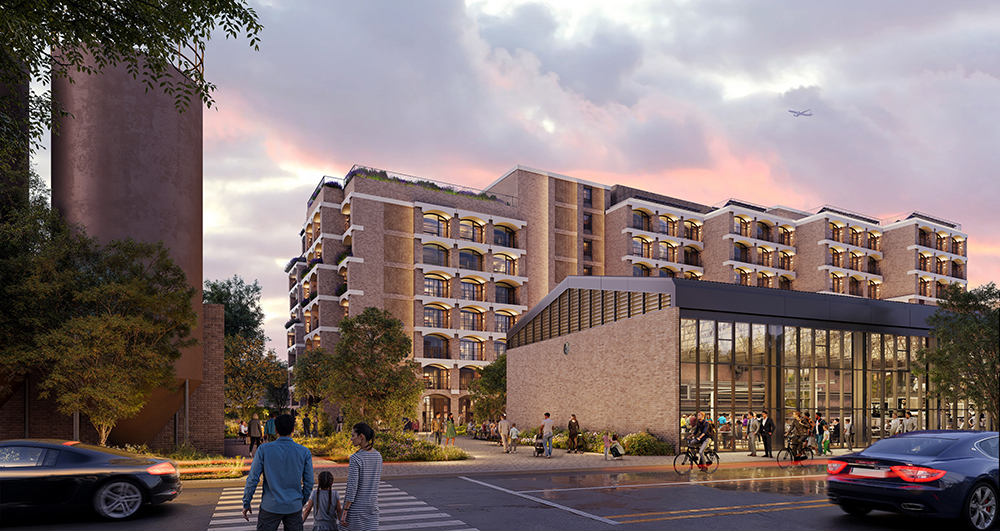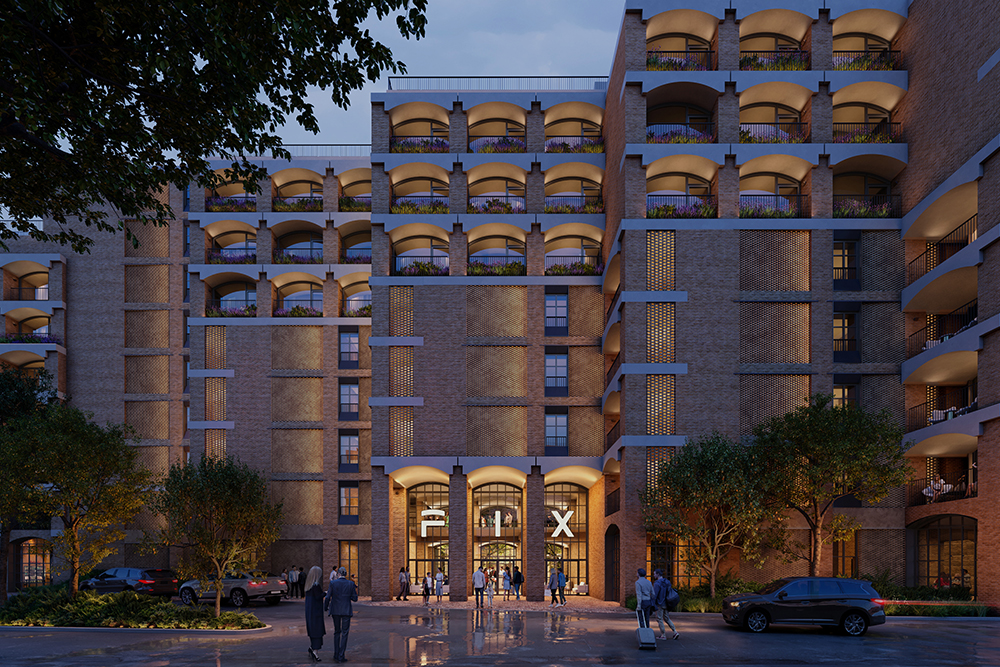Across the approximately 25-acre site on 26th Oktovriou Street, the three listed buildings of the historic former Karolos FIX brewery, which have been in decline for nearly four decades, are being restored and transformed into spaces dedicated to culture and social activities. In addition, two new bioclimatic buildings with sea views—a residential complex and a hotel—are being introduced.
The project has been undertaken by the internationally renowned architectural firm Foster + Partners, in collaboration with the Greek offices of Batzios and Spyros Tsagkaratos.

Regarding the listed buildings, the impressive former bottling facility (Complex 3), designed by Takis Zenetos—one of the most prominent architects of his time—and recognizable by its large characteristic glass panels, will be transformed into a multi-purpose venue for dining and events.
In Complex 2, which now belongs to the Ministry of Culture, the Kostakis Collection will be housed, among other uses. The collection comprises 1,277 works and represents the largest cultural investment ever made by the Greek state. It was purchased in 2000 by the Ministry of Culture for 33.5 million dollars, while its current value is estimated at 350 million euros.
The same space will also accommodate a library with more than 40,000 rare books, as well as the State Orchestra of Thessaloniki.

Complex 1—where works will commence immediately upon the issuance of the building permit—will be converted into a boutique hotel with 38 rooms, along with spaces designed to host art exhibitions. There is also the possibility of creating workshops—or even residences—for artisans practicing traditional crafts that are at risk of disappearing.
As for the new buildings, the eight-storey five-star hotel will have a capacity of 153 rooms, including a presidential suite, as well as 82 parking spaces. It will operate under the brand of an international hotel chain—its name has not yet been disclosed, with the details of the partnership expected to be announced in early 2026.

The number of residences will likely reach 96, with a total surface area of 18,900 square meters. They will range in size from 45 to 285 sq.m. across nine floors and will include 147 parking spaces. The preliminary design foresees the construction of five penthouses measuring 150 to 285 sq.m.; 31 one-bedroom residences of 80 to 115 sq.m.; 23 three-bedroom residences of 145 to 175 sq.m.; 21 two-bedroom residences of 90 to 165 sq.m.; and 16 residences ranging from 45 to 70 sq.m. The residences will be served by two lobbies.The project is financed by Piraeus Bank, while the northern Greek aluminium manufacturer Elvial, owned by the Tsikas family, holds a 25% stake in Filma—the project’s owning company and a subsidiary of Dimand.
Once completed, the project will constitute one of the largest urban regeneration initiatives undertaken in Thessaloniki, particularly given the scale of the local market. It encompasses a total of 100,000 square meters, including the FIX complex and the bioclimatic office building HUB26, which also houses the headquarters of the Black Sea Trade and Development Bank.
Dimand’s future plans for the area
Significant potential for further development is emerging in Thessaloniki’s western gateway, especially within a 500–1,000-meter radius of the FIX complex and HUB26, according to Dimand’s CEO, Dimitris Andriopoulos.
The company’s chief executive revealed that Dimand is currently negotiating a third project in western Thessaloniki, located very close to the FIX redevelopment site and HUB26.
This third project, he clarified, will feature mixed use, combining office spaces with socially oriented residential units (affordable housing).
The history of FIX
The history of FIX effectively begins in 1882, when the Misrachi family, of Jewish origin, constructed a ground-floor distillery on the site. A few years later, the prominent Jewish business families Allatini and Fernandez joined the venture, entering the ownership structure and transforming the facility into a brewery built to German and Bavarian standards. The brewery was renamed Olympus Brewery S.A.
Meanwhile, in 1909, just a few meters away, the Georgiadis brothers founded an ice factory, which three years later expanded into brewing under the name Naoussa, Georgiadis & Co. Ice and Refrigeration Industry. In 1920, the two companies merged, creating an integrated industrial complex known as Olympus–Naoussa.
In 1926, the Athens-based company Karolos Fix S.A. absorbed the complex, and the site acquired the name by which it is known today. FIX undertook extensive upgrades of the facilities, constructing a new malt house, brewery, and numerous auxiliary buildings—investments that supported a period of strong business growth lasting more than six decades.
In 1983, however, the company went bankrupt and National Bank of Greece discontinued its financing. By 1994, after a decade of neglect, vandalism, and even illegal rentals, the FIX complex was declared a historic and preserved monument by the Ministry of Culture, preventing its full destruction.















